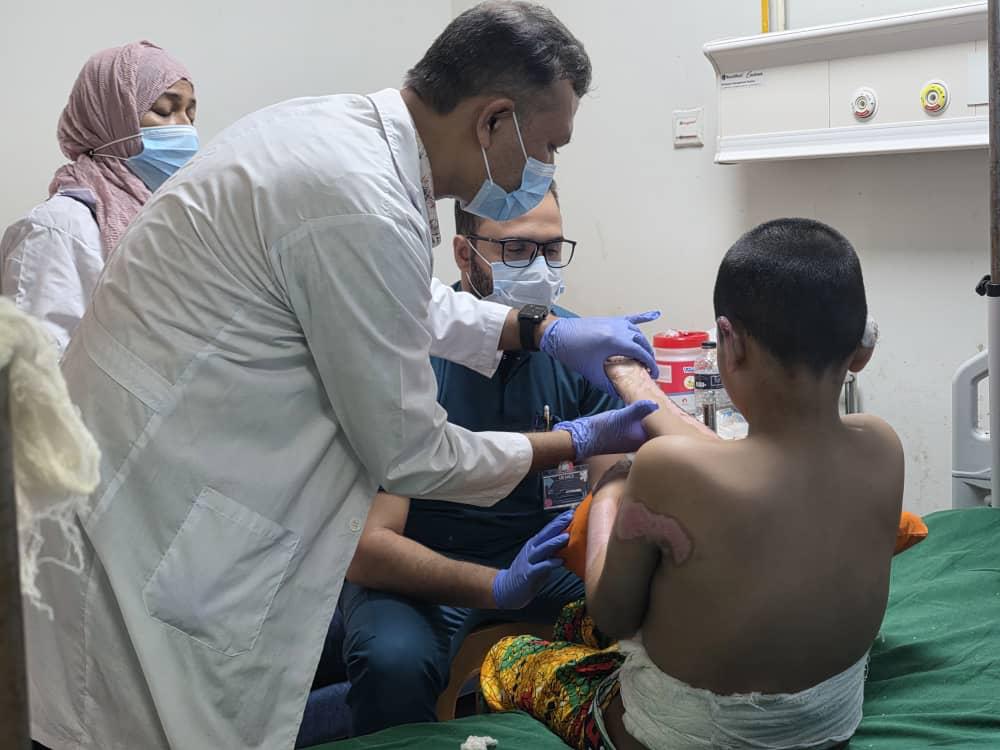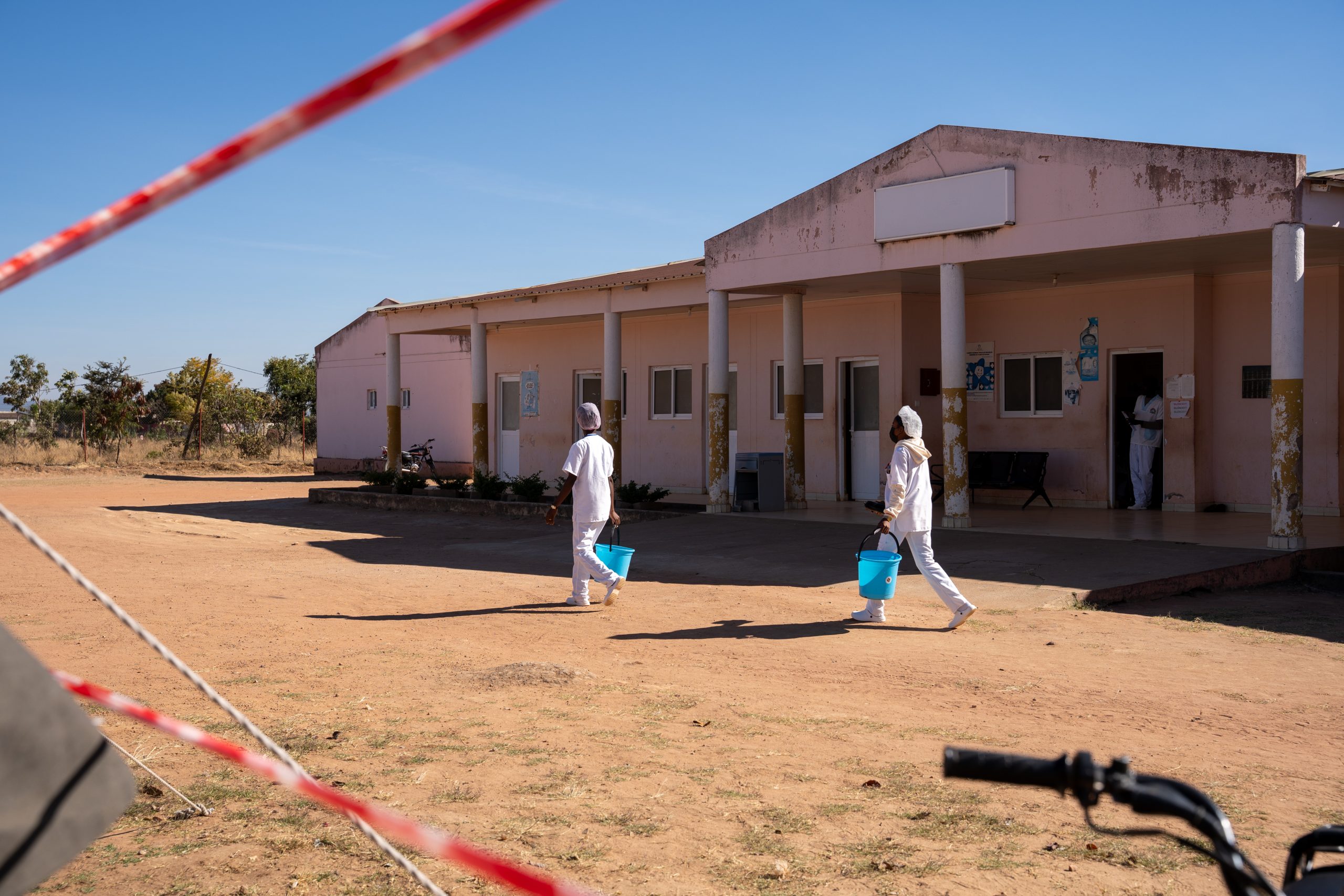
On 21 July 2025, during school hours, a Bangladesh Air Force training fighter jet crashed into Milestone School and College in Dhaka. 127 people were injured and tragically 27 deaths have since been confirmed, including 25 children.
1. Why were the UK Emergency Medical Team (UK EMT) deployed to Bangladesh?
Due to the high number and severity of casualties from the incident, health facilities were struggling to cope with the influx of patients. Prior to the team’s deployment, the Director of the National Institute of Burn and Plastic Surgery (NIBPS), leading the response, reported more than 25 patients remain in a very critical condition.
The purpose of the UK EMT Bangladesh response is to provide technical support to the Ministry of Health and Family Welfare (MoHFW) at the NIBPS for the care and rehabilitation of those affected by the recent plane crash.

2. What are the main health challenges facing survivors and local communities?
The National Institute of Burn and Plastic Surgery (NIBPS), where the UK EMT is based is the largest burns and plastic surgery hospital in the world. Daily activity is high, with 80–120 acute admissions and approximately 200 outpatient attendances every day. Hospital staff are incredibly stretched with their daily work and supplies are low across the hospital.
Additional challenges facing the staff, patients and community include:
- Pre-existing malnutrition amongst patients which can hinder wound healing and make it difficult to recover from injuries.
- Infection prevention control (IPC) measures are further exacerbated by the resource-limited and crowded environment which present significant challenges related to ventilator management and sepsis in severe burn patients.
- Difficulties with discharge planning, especially for patients living far from the hospital. These rehabilitation pathways are important so that recovery can continue beyond discharge from hospital.
- Lack of access to psychosocial support which enhances patient recovery.
3. What kind of medical and logistical support is the team providing on the ground?
The UK EMT has deployed a team of nine specialists across fields including rehabilitation, burns, infection prevention control, and intensive care. The team will be supporting the local staff to strengthen burn, trauma and rehabilitation services, by embedding specialists within existing facilities and undertaking assessment, planning and implementation of cases requiring intensive and inpatient care.
Where required, they will support pre- and post-operative planning of surgical cases, collaboratively developing interventions to meet the needs of complex burn and trauma patients, such as wound care and early rehabilitation. Through capacity building and direct patient care they will ensure these services are in place to reduce rates of physical disability post-incident.

4. How does the team work with Bangladeshi health services and international partners?
The team are embedded into the NIBPS hospital and work collaboratively with the hospital staff across all departments. The UK EMT initially ran a rapid assessment to not only establish the needs of the patients but also the needs of the staff and identify gaps where capacity building could support. Once these gaps were identified, the team created training sessions both on–the–job and classroom based to support the staff to increase their knowledge.
The core of the UK EMTs work at NIBPS is to work alongside the hospital, collaborating with the directors to ensure that the trainings and support work in a low resource setting and to better prepare the teams for any future crisis events.

5. What is the UK Emergency Medical Team and how does it respond to crises worldwide?
Emergency Medical Teams (EMTs) deliver essential medical care during conflicts, disasters, disease outbreaks, and other humanitarian emergencies. Depending on the needs of the countries and communities affected, this might involve deploying a small and highly specialist clinical, surgical, or advisory teams, primary care facilities and/or field hospitals.
UK-Med is verified by the World Health Organization as an Emergency Medical Team (EMT) and is the delivery partner of the UK Emergency Medical Team, the UK Government’s frontline health response to disasters overseas.
UK-Med launch, manage, and provide the personnel for UK Emergency Medical Team responses. We recruit, vet and train team members, so they’re available to deploy at a moment’s notice.
Since 2016, the UK EMT have provided emergency healthcare in humanitarian contexts on behalf of the UK Government. Funded by the Foreign, Commonwealth, and Development Office (FCDO), we are the frontline of the UK’s medical response to disasters around the world.







